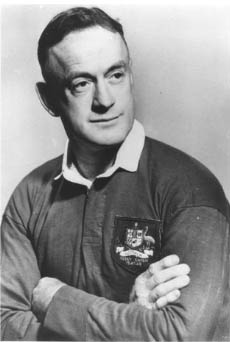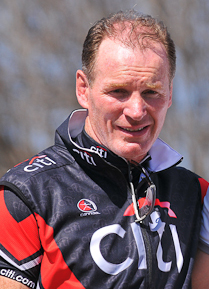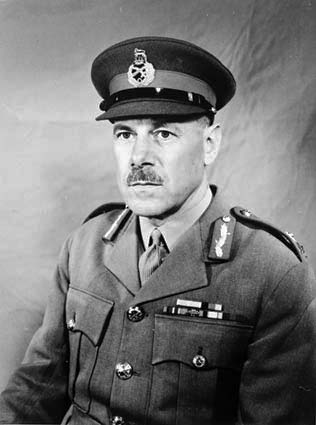Related Research Articles

The Royal Military College, Duntroon, also known simply as Duntroon, is the Australian Army's officer training establishment. It was founded at Duntroon, in Canberra, Australian Capital Territory, in 1911 and is at the foot of Mount Pleasant near Lake Burley Griffin, close to the Department of Defence headquarters at Russell Hill. Duntroon is adjacent to the Australian Defence Force Academy (ADFA), which is Australian Defence Force's tri-service military academy that provides military and tertiary academic education for junior officers of the Australian Army, Royal Australian Air Force and the Royal Australian Navy.

Cyril Towers was an Australian rugby union player, a state and national representative centre who made 57 appearances for the Wallabies, played in 19 Test matches and captained the national side on three occasions in 1937.

Simon Paul Poidevin is a former Australian rugby union player. Poidevin made his Test debut for Australia against Fiji during the 1980 tour of Fiji. He was a member of the Wallabies side that defeated New Zealand 2–1 in the 1980 Bledisloe Cup series. He toured with the Eighth Wallabies for the 1984 Australia rugby union tour of Britain and Ireland that won rugby union's "grand slam", the first Australian side to defeat all four home nations, England, Ireland, Wales and Scotland, on a tour. He debuted as captain of the Wallabies in a two-Test series against Argentina in 1986, substituting for the absent Andrew Slack. He was a member of the Wallabies on the 1986 Australia rugby union tour of New Zealand that beat the All Blacks, one of six international teams and second Australian team to win a Test series in New Zealand. During the 1987 Rugby World Cup, he overtook Peter Johnson as Australia's most capped Test player against Japan, captaining the Wallabies for the third time in his 43rd cap. He captained the Wallabies on a fourth and final occasion on the 1987 Australia rugby union tour of Argentina before injury ended his tour prematurely. In 1988, he briefly retired from international rugby, reversing his decision 42 days later ahead of the 1988 Bledisloe Cup series. Following this series, Poidevin returned to the Australian side for the single 1989 Bledisloe Cup Test. He returned full-time to the Australian national squad for the 1991 season. Poidevin was a member of the Wallabies that won the 1991 Rugby World Cup, after which he retired from international rugby union.
Michael David O'Connor is an Australian former rugby league and rugby union footballer who represented Australia in both codes. He played for the Wallabies in 13 Tests from 1979 to 1982 and then the Kangaroos in 17 Tests from 1985 to 1990. O'Connor played club football in the NSWRL Premiership for the St. George Dragons from 1983 until 1986, and later the Manly-Warringah Sea Eagles from 1987 until his retirement at the end of 1992, becoming captain of Manly in 1990, as well as winning the 1987 Winfield Cup with the Sea Eagles.
Richard Norman Thornett was one of five Australians to have represented their country in three sports. He was an Olympic water polo player before becoming a rugby league and rugby union player – a dual code international representative.
The McLean family were an Australian rugby clan who between them played 77 Tests for the Australian national rugby union team and a number of Tests for the Australian national rugby league team.

Lieutenant General Sir Reginald George Pollard, was a senior commander in the Australian Army. He served as Chief of the General Staff from 1960 to 1963.

Matthew Papali'i To'omua is an Australian rugby union professional player who has played close to 60 times for Australia since 2013. He plays for the Mitsubishi Dynaboars in the Japanese League One and his usual position is at fly-half or inside centre. He has previously played for the Brumbies in Australia, for Leicester Tigers in England's Premiership Rugby and for Melbourne Rebels in Super Rugby.
Colin "Col" Windon, was a rugby union player and soldier who captained Australia – the Wallabies – in two Test matches in 1951. By age 18 Windon was playing at flanker for his club Randwick in Sydney's Shute Shield. After serving with the Second Australian Imperial Force in the Pacific Theatre during the Second World War, Windon resumed his rugby career in 1946. He was first selected for Australia for their tour of New Zealand that year. Despite the Wallabies losing both their Tests on tour, Windon impressed with his play.
Rugby union is a popular sport in the Australian Capital Territory. Rugby football began to be played in the regions around what is now Canberra more than a century ago.
Major General Alan Lindsay "Alby" Morrison, AO, DSO, MBE was a senior officer in the Australian Army. A graduate of the Royal Military College, Duntroon, Morrison was commissioned as an infantry officer in 1947 and served on occupation duties in Japan as part of the British Commonwealth Occupation Force. He later served with the 3rd Battalion, Royal Australian Regiment, seeing combat as a platoon commander during the Korean War. After serving on the headquarters of the 28th Commonwealth Brigade, he led the 9th Battalion, Royal Australian Regiment, during its combat tour during the Vietnam War. His later appointments included commander of the 1st Brigade and commandant of Duntroon. He retired from the Army in 1981 after 36 years of service, and died in 2008 at the age of 80.

Lieutenant General Sir Mervyn Francis Brogan, was a senior officer in the Australian Army who served as Chief of the General Staff from 1971 to 1973.
William Thornton Watson, DSO, MC, DCM was a New Zealander who served as an officer in the Australian Imperial Force in both World Wars. Prior to and after the First World War he had a distinguished rugby union career, representing Australia in eight Test matches and captaining the national side on three occasions. During the New Guinea Campaign in the Second World War he was the Commanding Officer of the Papuan Infantry Battalion. Following the war, he served as Australia's Vice – Consul to New York.
John David "Brock" Brockhoff was an Australian rugby union identity, a state and national representative who played eight Tests as flanker between 1949 and 1951. He was later coach of the national team from 1974 to 1976, and in 1979. He maintained an active involvement in rugby union in Australia for his entire life.

Malcolm Stuart Kennedy was an Australian rules footballer who played with Melbourne in the Victorian Football League (VFL). He was killed in action on active service in Belgium in World War I.

Major General Edward James Milford was an Australian Army officer who fought in the First and the Second World Wars.

Ratu Henry Vao'ofu Speight is a Fiji-born Australian professional rugby union player. He currently plays for the French club Biarritz. Speight was previously with the Brumbies and Queensland Reds in Super Rugby, and has represented Australia with the Wallabies and national sevens team. He is currently playing for Wests in the Queensland Premier Rugby competition. His playing position is wing or centre.

The ACT Vets are a rugby union team based in Canberra, Australian Capital Territory (ACT), whose players must be 35 years of age or older. Portsea Oval, at the Royal Military College, Duntroon is the club's home ground.
Taniela Tupou is an Australian professional rugby union player. He plays as a tight head prop for the Melbourne Rebels in the Super Rugby Pacific and has represented Australia in international rugby. Born in Tonga he qualifies for Australia by residency.
Charles "Chilla" Roy Wilson was an Australian national representative rugby union flanker and national captain. He was tour manager on a number of Wallaby international tours of the 1980s including the 1984 Wallaby Grand Slam tour of the British Isles.
References
- ↑ "Spectacular try to capt". Australian Army . 18 May 1961. p. 11 – via National Library of Australia.
- 1 2 3 4 5 "Malcolm Montague van Gelder". Classic Wallabies.
- ↑ "Wallabies honour Prosser, Van Gelder". Fox Sports . 21 August 2008.
- ↑ "Rugby Union Trial Won By Victoria". The Canberra Times . 12 May 1961. p. 31 – via National Library of Australia.